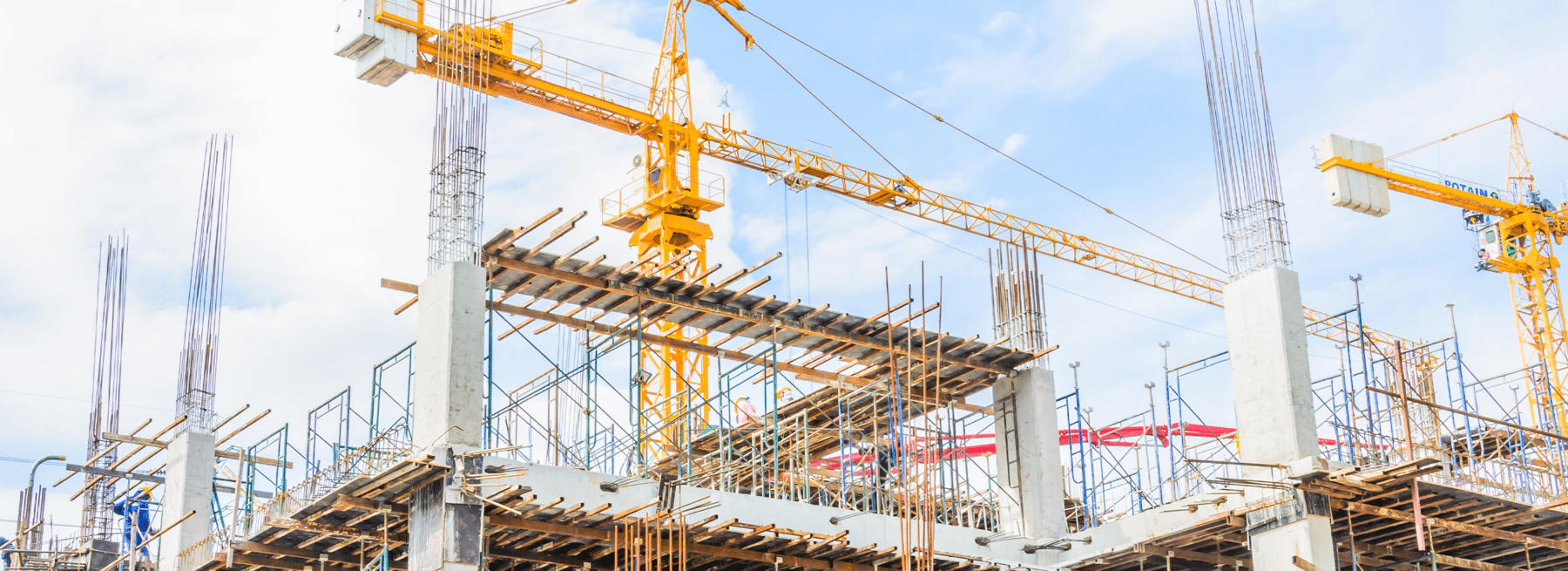Crime on construction sites continues to be an issue including for those related to utility projects. They’re one of the most common types of construction projects as there is always a need for electricity, gas, water, and renewable energy. Thieves often target construction sites because of the nature of the site. Equipment, materials, and tools are often left unprotected after everyone has gone home for the day.
Construction theft is a problem in both the U.S. and Canada. ConstructConnect Daily Commercial News quotes Procore CEO Tooey Courtemanch, who says it’s a global problem affecting the U.S. construction market. In addition to the theft of large equipment and materials are power tools. According to the NYU Dispatch, power tool theft will continue to grow until at least 2025.
The cause of the growing number of thefts is that criminals know many states have changed their laws about the type of crime and the classification of crimes from felony to misdemeanor. Lower-priced items tend to be a lower-level crime. Criminals and organized crime rings consider a misdemeanor as a low-risk crime with a high reward.
The ConstructConnect Daily Commercial News reports the Canadian Construction Association conference talked about theft in construction. President and CEO of Northbridge Financial Corp. Silvy Wright revealed that theft is the top insurance claim in the construction industry. This makes up almost 40% of the company’s claims.
Wright says the problems with the supply chain continue to cause problems for the industry because it has increased the cost of materials and equipment. Inflation and higher interest rates are making matters worse.
The Potential Cost of Construction Theft on Utility Projects
Then, there is the National Equipment Register report which says heavy equipment theft costs an average of $400 million dollars every year. With fewer than 25% of stolen items ever recovered, it’s unlikely any company dealing with theft will be able to get back their stolen goods. Therefore, they need to do what they can to protect construction sites, especially on utility projects.
Unfortunately, the numbers are probably worse than the NER data shows. This is because many construction site thefts are not reported. Insurance premiums are expensive and construction companies don’t want to risk them increasing after a theft. So, construction theft tends to be underreported. The data also does not cover the cost of lost workdays due to work stoppage while waiting on replacements for the stolen items and equipment.
Many articles confirm thieves are becoming more brazen as a Levelset story confirms. One company had $10,000 worth of materials stolen. A representative from United Contractors says construction site theft continues to be a problem. They said that just about everyone in general contracting has been affected by it.
This shift in the nature of the thefts has nothing to do with the pandemic. The Levelset story has an example of how the crooks cut water lines to completely remove an entire building plumbing system just for the copper. It also affirms that when anyone makes an insurance claim on a construction site, it causes the insurance premiums to go up. And this leads to cash flow problems as a Levelset survey has found 97% of the respondents are dealing with that.
When something is stolen, it also causes delays. That means the general contractor loses more money. It’s a domino effect. Delays make the project more expensive and increase the risk of missing deadlines.
How can construction sites project their utility projects? Tom Scalsi provides the following points:
- Prequalify contractors because many thefts are internal, and they tend to be repeat offenders.
- Secure the site with a tall fence and lighting.
- Create and distribute the construction site security plan.
- Install a video surveillance system.
But it can’t be just any video surveillance system. Utility projects need a proactive security camera solution.
Solar and Mobile Surveillance Enhance Security for Utility Projects
Utility construction sites are sometimes empty for a long time. This puts them at a greater risk of theft, vandalism, and other problems. What are the ideal security technologies for utility projects including those in areas that are out in the country that may not have a good network connection? Stealth Monitoring has designed a video surveillance system with remote monitoring that helps secure the most challenging sites, including those in secluded locations.
This solution was created based on years of experience securing construction sites. It’s a mobile video surveillance system with security cameras that can be mounted on any flat surface or pole. It can also go on the roof of a construction site project trailer. This solution is mobile and quick to deploy while overcoming the challenges often found on utility projects.
The mobile and temporary video surveillance solution offers the following benefits:
- Is a self-contained security camera solution.
- Has battery backup for any potential power outages.
- Can be deployed quickly.
- Offers flexibility to be scaled.
- Works with hardwired internet or wireless.
- Supports two-way audio so an offsite monitor can talk to anyone on site.
- Functions in many locations and can be self-sustaining.
- Allows users to view cameras from PCs, laptops, and mobile devices.
The solar-powered surveillance technology does not use diesel generators, which come with many problems and have low energy conversion efficiency while consuming massive amounts of power. Diesel generators have high-operating costs, frequent fault occurrences, and unstable communication services. They also come with a large carbon footprint.
Utility projects demand a robust camera solution that doesn’t come with the problems associated with diesel generators. Stealth has solved that problem with solar trailers. These solar trailers include pole-mounted versions, and their video cameras can record and monitor construction sites. This is a cost-effective solution that can potentially help reduce insurance premiums.
A solar and mobile video surveillance solution has the following components:
- Battery enclosure: Stores the batteries and solar charge controller. Since it’s heavy, the company mounts them at the ground level for stability and effortless installation.
- Solar panels: Two solar panels deliver up to 200W charging power. They are installed in a location that gets maximum exposure to the sun.
- Housing: The enclosure contains the modem, Raspberry Pi, and power monitor with the IP cameras providing the best field views. This housing can include a strobe and two-way speaker.
The housing enclosure contains remote-controlled relays. It allows Stealth Monitoring professionals to do troubleshooting without being on the utility project site and conduct system health checks to ensure they’re operating. To save power outside of monitoring hours, the system can also be powered down remotely.
Anytime an intruder appears on the utility project site, a trained security operator who is monitoring the cameras can alert them over an audio speaker. In addition, the operator can call local authorities.
What About Security Guards for Utility Projects?
The biggest barrier to hiring security guards is cost. The cost proliferates with each additional security guard hired. They also come with a factor of unpredictability. You can’t be sure they will respond correctly to a dangerous situation when their lives are at risk. If they receive any kind of training, it’s a drop in the bucket compared to what the training police officers get.
Most states recommend approximately 24 hours of training for security guards. Is that enough to prepare them for every scenario? Is that enough to prevent them from fleeing for their lives? Is that enough to provide peace of mind?
Besides, it turns out security guards can be a liability. Furthermore, a report from CNN and the Center for Investigative Reporting has found many security guards have a criminal past. In some cases, the security guard contracting company may not run a background check on its employees. Since the security guard industry has a high turnover rate, 31 states don’t require background checks. The states don’t have the time and resources to manage background checks.
Considering many general contracting companies are dealing with cash flow challenges, the cost of security guards could be out of reach. The solar and mobile video surveillance solution can monitor the entire utility project site. This solution is more cost-effective than security guards.
Even with security guards present on the utility project site, crime and vandalism still happen. That’s because construction sites are big and make it challenging for security guards to see the entire area from their vantage points. The site can be hazardous, putting security guards at risk for injuries, which could lead to a liability claim.
Video surveillance cameras can catch and record everything. Security guards don’t have this ability. They may have cell phones but they’re not going to film a crime in action when they should be responding. These video recordings give you the evidence you need for law enforcement investigations, liability claims, and other problems.
With mobile surveillance, unpredictability, and human error is less of a concern. The trained monitoring operators watching the cameras work from a remote location away from the utility project site. Their lives are never at risk.
Security guards can increase liability while remote video surveillance can decrease liability. The flexibility of solar and mobile surveillance from Stealth Monitoring can deliver a fast ROI for security. It can maximize property coverage and it may lower your liability insurance premiums. Stealth professionals have worked with clients to help them get their insurance premiums lowered.
If you’d like to learn more, explore this website and check out the construction site videos that show how security cameras with remote monitoring can deter crimes. For more information about mobile surveillance and business security solutions, please contact us.
Texas Private Security License Number: B14187
California Alarm Operator License Number: ACO7876
Florida Alarm System Contractor I License Number: EF20001598
Tennessee Alarm Contracting Company License Number: 2294
Virginia Private Security Services Business License Number: 11-19499
Alabama Electronic Security License # 002116
Canada TSBC License: LEL0200704

